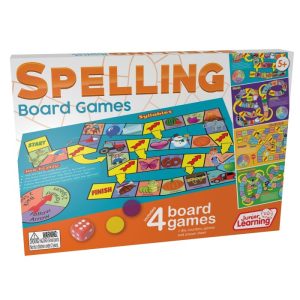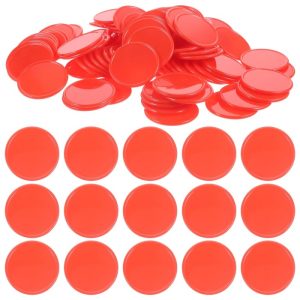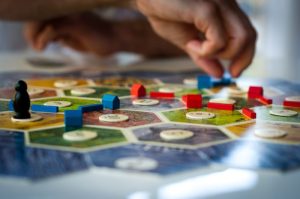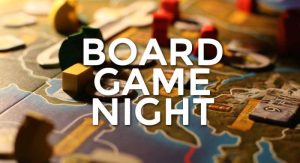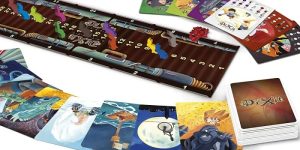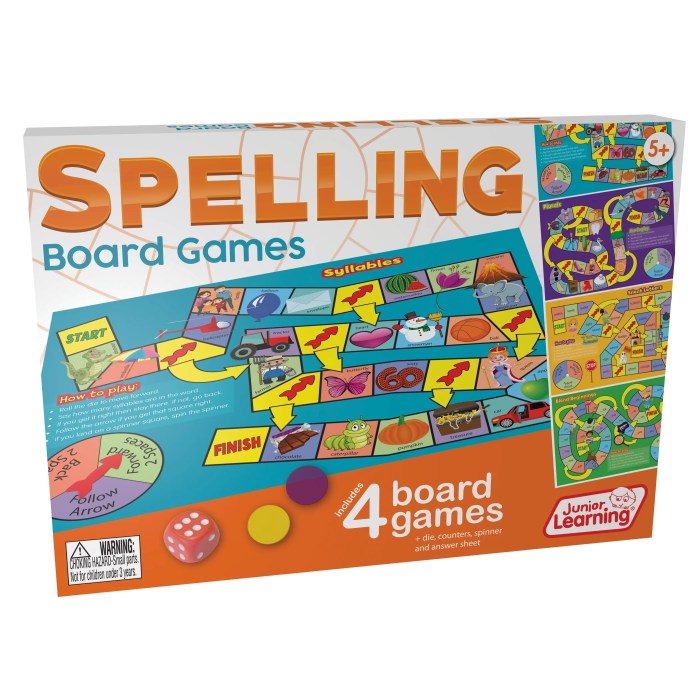
Embark on a journey through the world of Educational Board Games, where learning meets excitement in a unique blend that captivates both young and old alike.
Explore the realm of educational games that not only entertain but also foster growth and development in a fun and interactive way.
Introduction to Educational Board Games
Educational board games are games designed with the primary purpose of teaching or reinforcing specific skills, concepts, or knowledge in a fun and engaging way. These games are not only entertaining but also provide a valuable learning experience for players of all ages.
Examples of Popular Educational Board Games
- 1. Scrabble: A word game that helps improve vocabulary and spelling skills.
- 2. Monopoly: Teaches financial literacy, math skills, and strategic thinking.
- 3. Catan: Focuses on resource management, negotiation, and critical thinking.
- 4. Ticket to Ride: Enhances geography knowledge and strategic planning.
Benefits of Using Board Games for Educational Purposes
- 1. Engagement: Board games make learning enjoyable and interactive, increasing engagement and motivation.
- 2. Social Skills: Players learn to communicate, collaborate, and problem-solve together.
- 3. Cognitive Development: Games promote critical thinking, decision-making, and memory skills.
- 4. Subject Reinforcement: Board games can reinforce academic subjects like math, language arts, and science in a hands-on way.
Types of Educational Board Games
When it comes to educational board games, there are various categories that cater to different learning objectives and subjects. These games are designed to make learning fun and engaging for players of all ages.
STEM Educational Board Games
STEM (Science, Technology, Engineering, and Mathematics) educational board games focus on developing skills in these areas. Players can learn about scientific concepts, problem-solving, and critical thinking while playing these games. Some popular examples include “Cytosis” and “Prime Climb”.
Language Educational Board Games
Language educational board games help players improve their vocabulary, grammar, and language skills. These games are great for language learners or anyone looking to enhance their communication abilities. Games like “Scrabble” and “Bananagrams” fall into this category.
History Educational Board Games
History educational board games allow players to explore different historical events, figures, and time periods while having fun. These games can help improve knowledge of historical facts and critical thinking skills. Examples include “Timeline” and “Freedom: The Underground Railroad”.
Cooperative vs Competitive Educational Board Games

Cooperative educational board games promote teamwork, collaboration, and communication among players. The focus is on working together towards a common goal, fostering a sense of unity and shared success. On the other hand, competitive educational board games involve players competing against each other to achieve victory. These games can help develop strategic thinking, decision-making, and sportsmanship skills.
Age Groups that Benefit from Educational Board Games
Educational board games are suitable for players of all ages, from young children to adults. Young children can benefit from games that focus on basic skills like counting, colors, and shapes, while older children and teenagers can engage in more complex games that challenge their cognitive abilities. Adults can also enjoy educational board games as a way to learn new skills or knowledge in a fun and interactive way.
Benefits of Educational Board Games
Educational board games offer a wide range of benefits beyond just entertainment. They play a crucial role in enhancing various skills and improving overall cognitive development.
Enhancement of Critical Thinking Skills
Educational board games are designed to challenge players to think strategically, solve problems, and make decisions based on critical analysis. By engaging in these games, players are required to plan ahead, anticipate consequences, and adapt their strategies accordingly. This process not only sharpens their critical thinking skills but also enhances their ability to think creatively and logically.
Improvement in Social Skills and Collaboration
Board games often involve interaction with other players, which fosters social skills such as communication, teamwork, and cooperation. Players learn how to take turns, follow rules, and respect each other’s opinions. Through collaborative gameplay, individuals develop empathy, effective communication, and conflict resolution skills. These social interactions are essential for building strong relationships and functioning well in a group setting.
Impact on Memory Retention and Learning Outcomes
Engaging in educational board games requires players to remember rules, strategies, and patterns throughout the game. This constant exercise of memory helps improve retention skills and enhances overall memory capacity. Furthermore, the combination of fun and learning in board games makes the learning process more engaging and effective. As a result, players are more likely to retain information and apply knowledge gained from playing board games to real-life situations, leading to improved learning outcomes.
Design and Development of Educational Board Games

Designing and developing educational board games involves a creative process that combines elements of game design with educational content to engage and educate players.
Role of Research and Testing
Research and testing play a crucial role in developing effective educational board games. Conducting research helps game designers understand the target audience, educational goals, and the most effective ways to integrate learning objectives into the game.
- Research can involve studying educational theories, curriculum standards, and cognitive development to ensure the game aligns with educational objectives.
- Testing the game with actual players allows designers to gather feedback, identify areas for improvement, and ensure the game is engaging and educational.
- Iterative testing and refinement are essential to create a game that effectively balances fun gameplay with educational content.
Strategies for Incorporating Educational Content
Integrating educational content into game mechanics requires thoughtful design to ensure that learning objectives are effectively communicated while maintaining player engagement.
- Designing game mechanics that reinforce educational concepts through gameplay, such as math puzzles, language challenges, or historical trivia.
- Using thematic elements to immerse players in the educational content, such as setting the game in a historical period or a scientific setting.
- Providing feedback and rewards that reinforce learning achievements, encouraging players to continue engaging with the educational content.
Board Game Components and Accessories
When it comes to educational board games, the components and accessories play a crucial role in enhancing the overall gaming experience and learning outcomes.
Essential Components
- Game Pieces: These are tokens or figurines used by players to represent themselves in the game and interact with the board.
- Board: The game board serves as the central playing area where players move their pieces and progress through the game.
- Cards: Cards are often used to provide players with information, challenges, or tasks to complete during the game.
Importance of Clear Rules and Rulebooks
Having clear rules and a well-structured rulebook is essential in educational board games to ensure that all players understand how to play the game correctly. Rules help maintain fairness, consistency, and a sense of order throughout the gameplay.
Use of Accessories
- Timers: Timers add an element of urgency and time management to the game, encouraging players to think quickly and make decisions under pressure.
- Dice: Dice are commonly used in board games to introduce an element of chance and randomness, making the gameplay more unpredictable and engaging.
- Spinners: Spinners are another tool that can be used to determine outcomes or actions in the game, adding a fun and interactive twist to the gameplay experience.
Educational Board Games for Different Subjects
Educational board games come in various forms, designed to cater to different subjects and topics. These games offer a fun and interactive way for students to engage with complex subjects, making learning more enjoyable and effective.
Mathematics
Mathematics can be a challenging subject for many students, but educational board games like “Math Bingo” or “Sum Swamp” can make learning math concepts more engaging. These games often involve solving math problems, practicing arithmetic skills, and improving critical thinking in a fun and interactive manner.
Science
Science board games, such as “Biology Blox” or “Periodic Table Battleship,” help students grasp scientific concepts through hands-on experience. These games often involve experiments, quizzes, and challenges that make learning science more interactive and enjoyable.
Geography
Geography board games like “GeoBee Challenge” or “WorldWise” are designed to enhance students’ knowledge of world geography. These games involve identifying countries, capitals, landmarks, and geographical features, making learning about different regions of the world fun and engaging.
Success Stories
- One success story involves a group of students who struggled with math concepts until they started playing “Math Bingo” regularly. The game helped them practice arithmetic skills and improve their understanding of math, leading to higher grades in the subject.
- In another instance, a science teacher incorporated “Biology Blox” into their lesson plans and saw a significant increase in student engagement and retention of scientific knowledge. The hands-on nature of the game made learning biology more interactive and memorable for the students.
- Furthermore, a geography club used “GeoBee Challenge” to prepare for a national geography competition and ended up winning the top prize. The game helped the students learn about different countries and regions in a fun and competitive way, ultimately leading to their success in the competition.
Outcome Summary
Experience the joy of learning through play with Educational Board Games, where knowledge and enjoyment merge to create unforgettable moments of discovery and growth.
Helpful Answers
Are educational board games only for kids?
No, there are educational board games designed for various age groups, including adults, to enjoy and benefit from.
How do educational board games improve critical thinking skills?
Educational board games often require strategic thinking, problem-solving, and decision-making, which helps enhance critical thinking abilities.
Can educational board games be used in classrooms?
Absolutely! Many teachers incorporate educational board games into their lesson plans to make learning more engaging and interactive for students.
